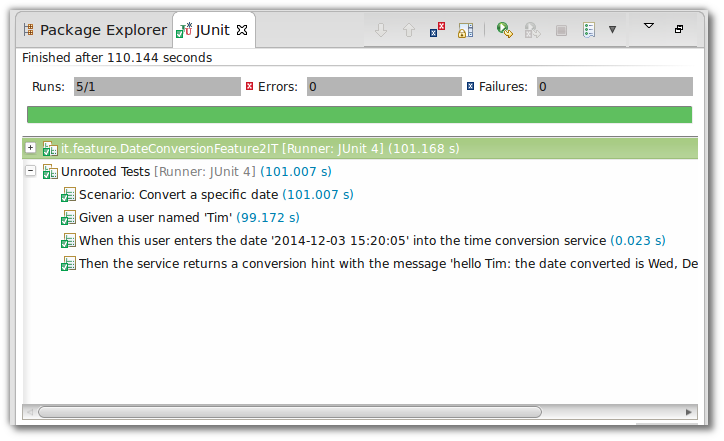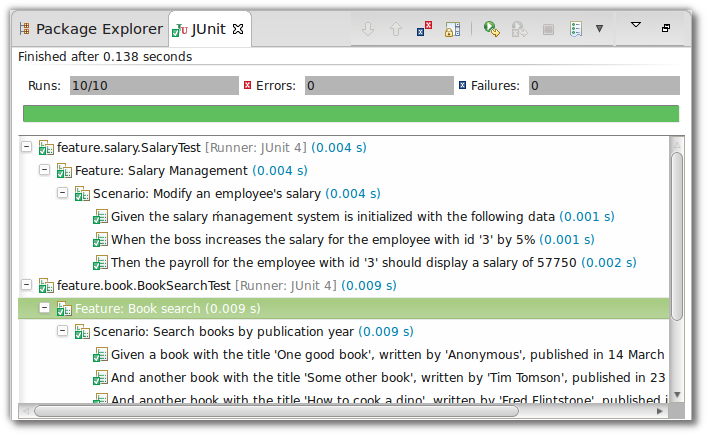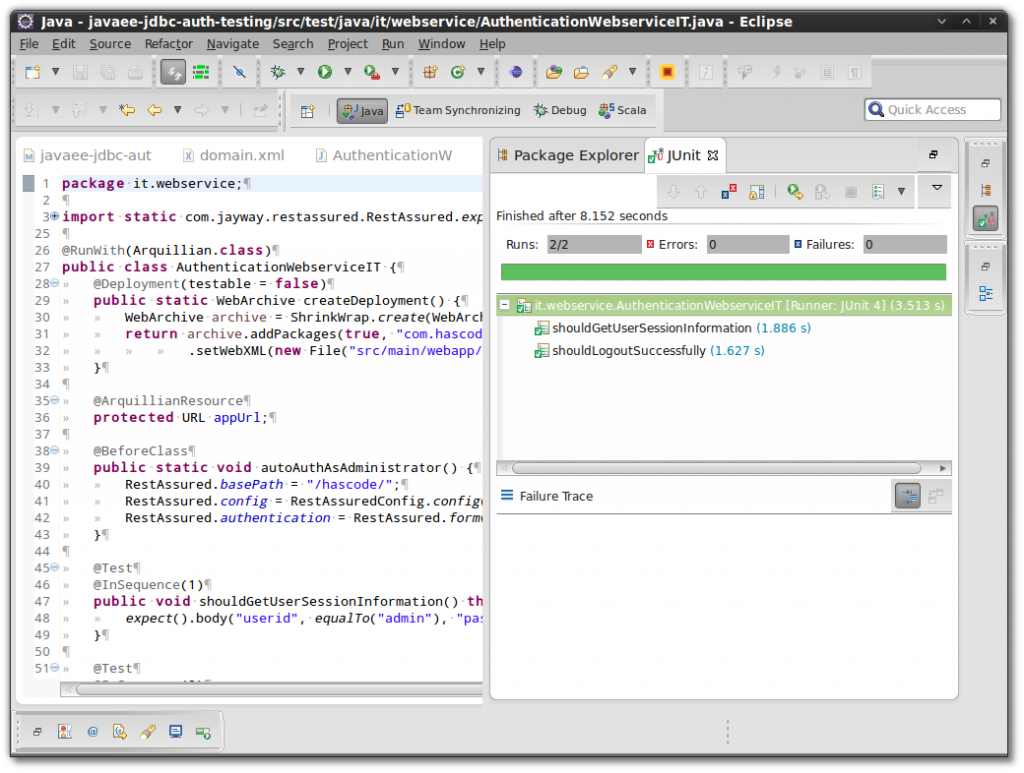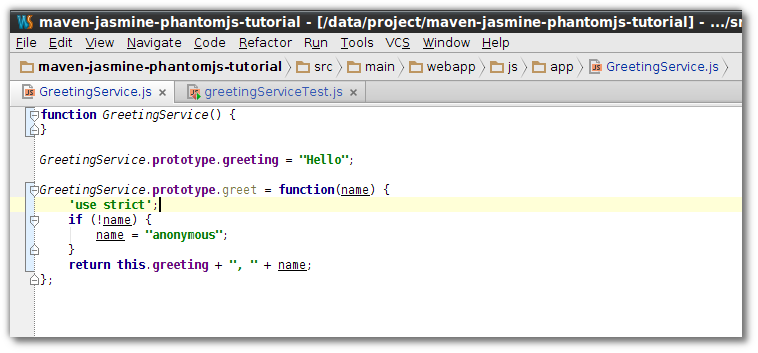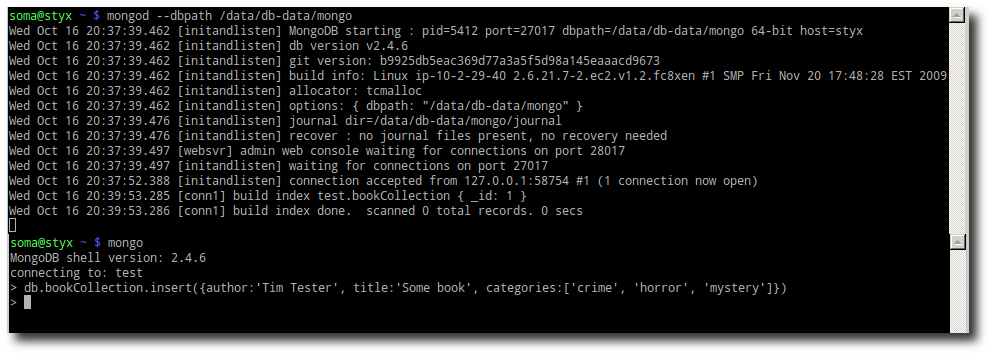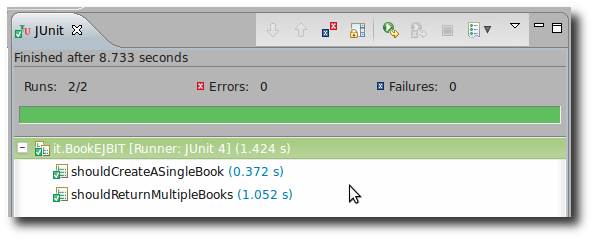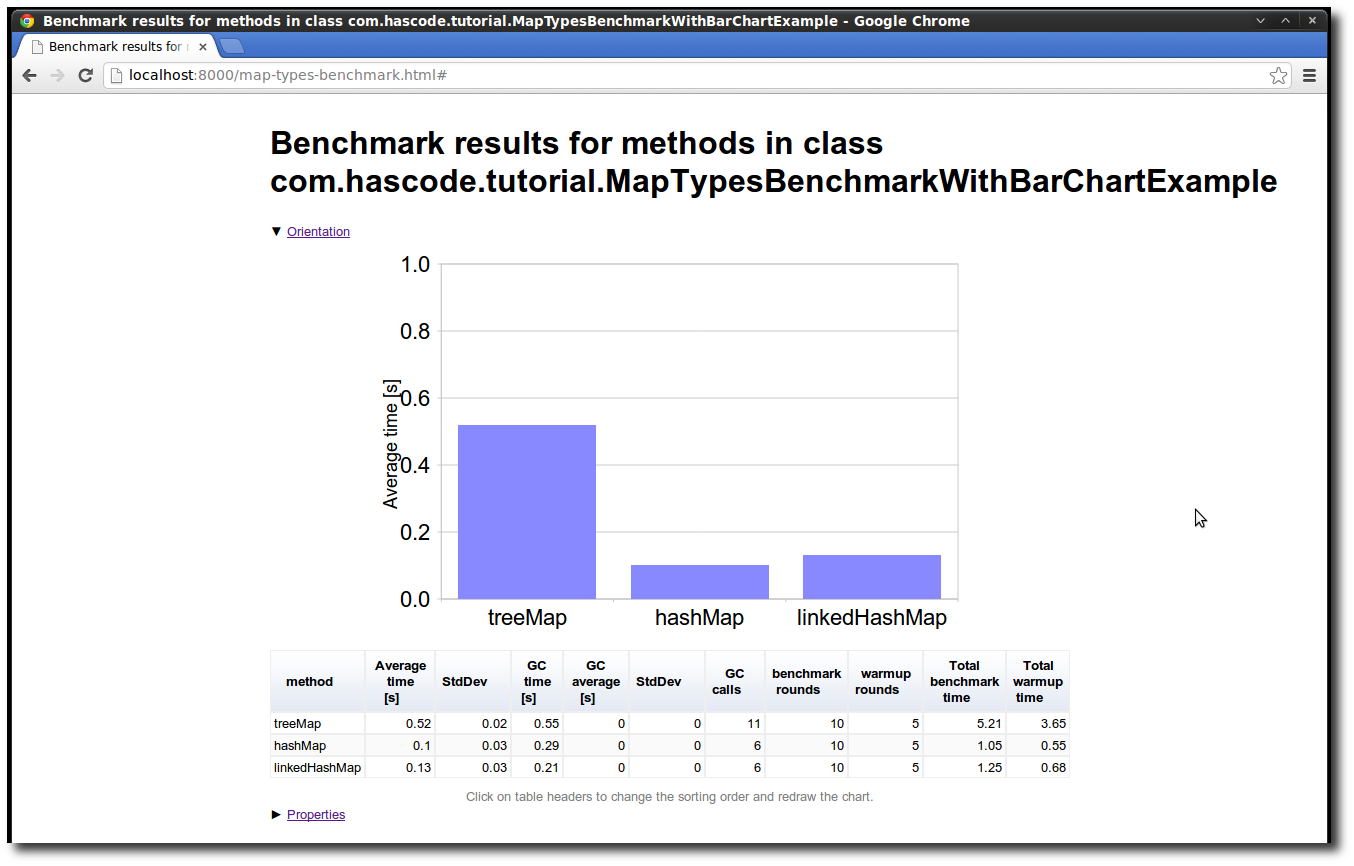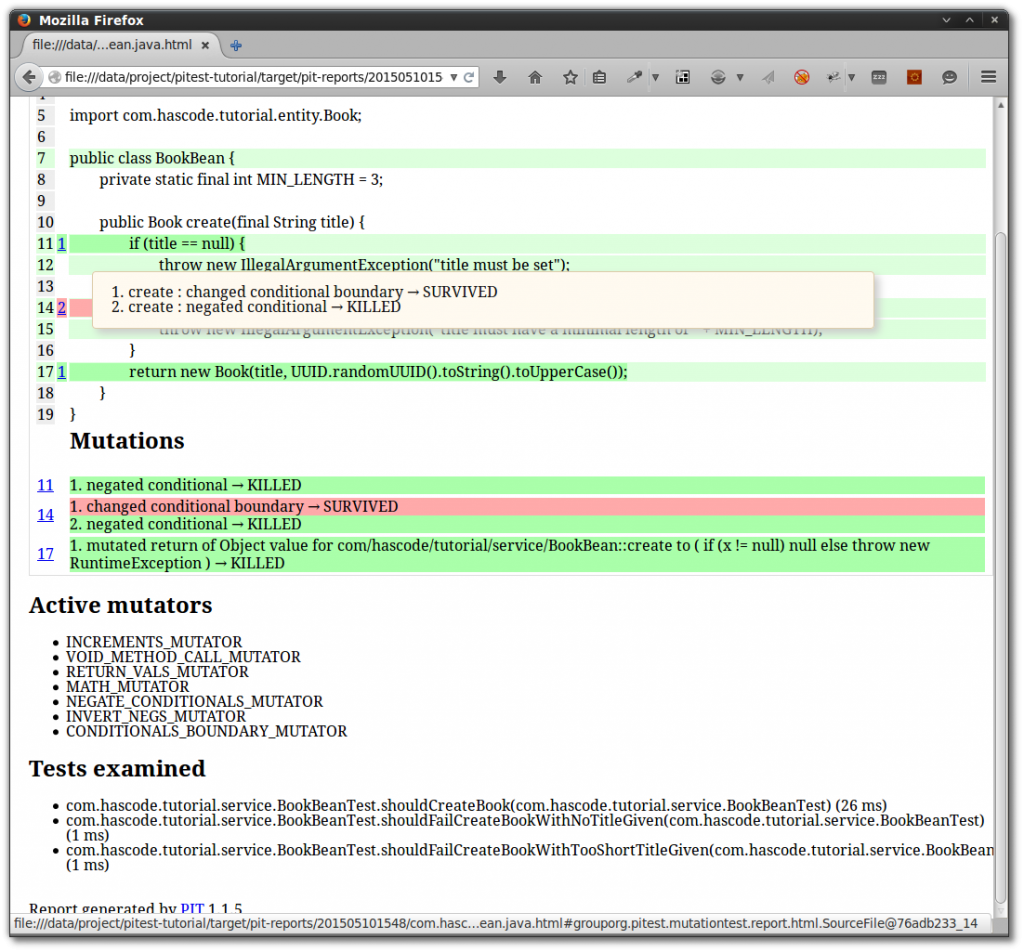
Mutation Testing with Pitest and Maven
Mutation testing makes an interesting addition to the classical test coverage metrics. They seed mutations (errors) into the code, run the project’s tests afterwards and if the tests fail, the mutation is killed – otherwise it lived and we have a possible indication of an issue with our tests. In the following short tutorial. I’d like to demonstrate how to setup mutation tests with the PIT/Pitest library and Maven and generate reports. ...

